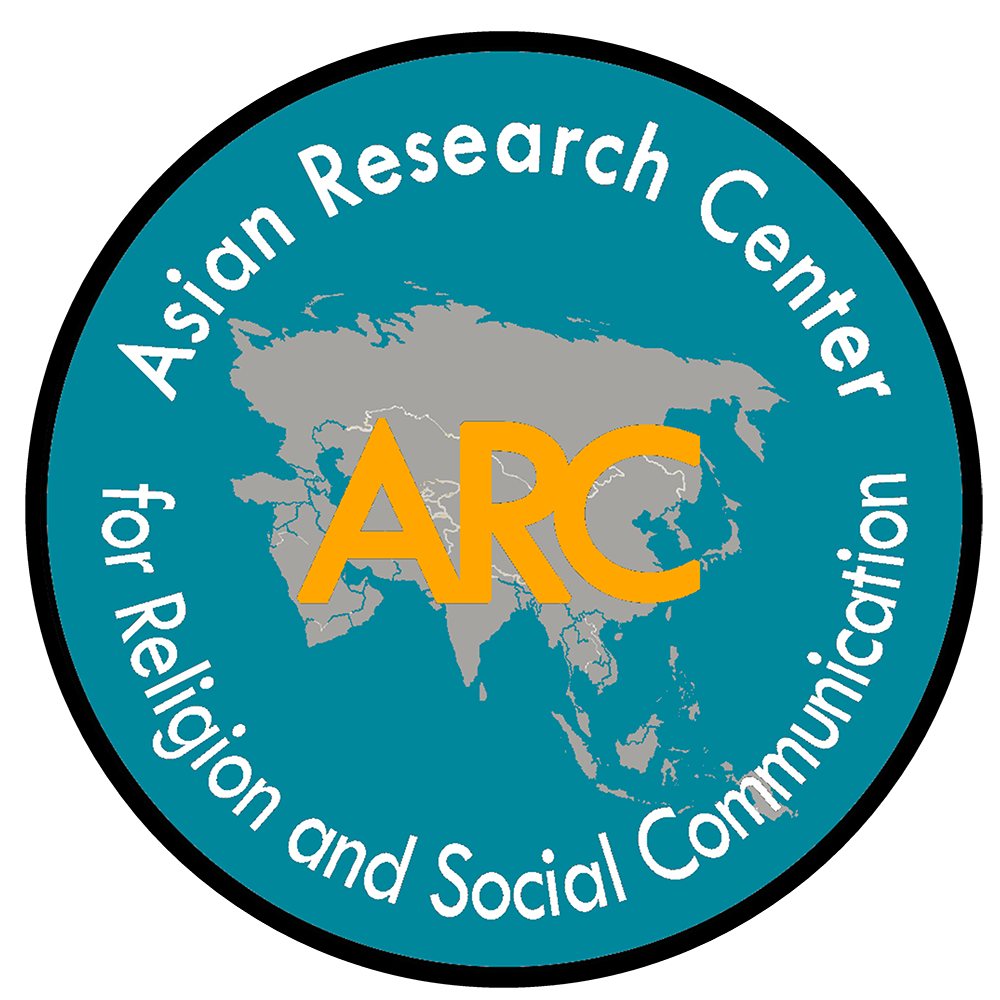Confucian Values and Their Contemporary Applications on Social Media
RELIGION AND SOCIAL COMMUNICATION VOLUME 23, NO. 2 (JULY - DECEMBER 2025)
ISSN 3057-0883 (ONLINE)
Author
Leonel B. Ballesta
Abstract
This research explores the ethical implications of using social media and fostering interfaith dialogue across religious traditions and cultures, utilizing Confucian principles as a framework for analysis. This research delves into the nuanced exploration of the Confucian Golden Rule within the Analects focusing on the Confucian concept of Ren, a central virtue emphasizing humaneness, benevolence, and social harmony, which offers valuable guidance for ethical media practices. By examining specific case studies and analyzing the ethical implications of media portrayals, this research aims to identify areas for improvement and offer recommendations for more ethical and responsible media practices by employing the analytical perspectives of Alfredo Co, Richard Ang. Co’s meticulous examination unveils the cultural and historical context shaping Confucius’ moral paradigm, elucidating the subtle interplay between filial piety and ethical conduct. Ang’s critical lens adds depth by dissecting the linguistic nuances embedded in the Analects, deciphering the layered meanings behind Confucius’ aphorisms and their implications for moral conduct. Key findings include the challenges of misinformation, online harassment, and commercialization in social media. The research highlights the importance of using social media responsibly, promoting religious open-mindedness, and fostering community engagement. This research shows the moral framework created by Co and Ang and investigates the multifaceted pathways of Confucian philosophy, highlighting significance of Confucius’ teachings as foundational guidelines for ethical behavior in modern society. It offers valuable insights for religious people, educators, and media professionals seeking to promote ethical and responsible online practices.
Keywords
religious education, social media, Confucian virtues, ren
References
Al-Sammak, N. I., O. H. Atiyah, M. A. Hussein, M. Mohamed, M. A. M. S. F. Mohamed, M. M. Ahmed, and H. Mohamed. “Impacts of Social Media on Psychological, Social and Educational Aspects of Life.” Annals of the College of Medicine 46, no. 1 (2024): 49–55. https://doi.org/10.33899/mmed.2024.144790.1240.
Ang, Richard. “On Conceiving Ren towards Birthing Ru Jia.” In Philippiniana Sacra, Vol. XLVI, No. 138, 535-564. Manila: University of Santo Tomas Publishing House, 2011.
Berling, Judith A. “Confucianism.” Focus on Asian Studies 2, no. 1 (Fall 1982): 5-7.
Carroll, J.A., R.T. Kreutzer, and J. Hinz. “Möglichkeiten und Grenzen von Social Media Marketing.” Working Papers of the Institute of Management Berlin at the Berlin School of Economics and Law, Paper No. 58, (2010).
Carlsson, Jeanette. “An Assessment of Social Media Business.” Diploma in Advanced Strategy. University of Oxford, Saïd Business School, July 2010. http://www.opengardensblog.futuretext.com/wp.
Co, Alfredo P. Across the Philosophical Silk Road: A Festschrift in Honor of Alfredo Co. Volume 1: The Blooming of the Hundred Flowers, Philosophy of Ancient China. Manila: University of Santo Tomas Publishing House, 2009.
__________. “Confucianism and Social Media: Opportunities and Challenges.” Journal of Confucian Studies 15, no. 2 (2020): 123-145.
Damian, Maher. “Social Media Use by Secondary School Students: Benefits and Challenges.” Academic Press, no. 1 (2024): 3-19. doi: 10.1016/b978-0-323-90237-3.00001-1.
Hui, Victoria. “The Impact of Social Media on Religious Education in the Digital Age.” International Journal of Education and Religion 10, no. 2 (2019): 67-89.
Kaplan, Andreas M., and Michael Haenlein. “Users of the World, Unite! The Challenges and Opportunities of Social Media.” Business Horizons 53, no. 1 (2010): 59–68. doi:10.1016/j.bushor.2009.09.003.
Kirk, Hannah Rose, Kangkyu Lee, and Carlisle Micallef. “The Nuances of Confucianism in Technology Policy: An Inquiry into the Interaction Between Cultural and Political Systems in Chinese Digital Ethics.” International Journal of Politics Culture and Society 35, no. 2 (August 19, 2020): 129–52. https://doi.org/10.1007/s10767-020-09370-8..
Le Duc, Anthony. “Confucian Communication Ethics in Media: A Short Introduction.” June 20, 2023. Available at SSRN: http://dx.doi.org/10.2139/ssrn.4485017 .
__________. “Promoting Ecological Civilization through Religious Prophetic Communication: An Interreligious Framework.” Ecological Civilization 1 (2024): 10010. https://doi.org/10.35534/ecolciviliz.2024.10010.
Legge, James. “The Analects, A Confucian Classic.” Oxford: Clarendon Press, 1893. https://en.wikisource.org/wiki/The_Chinese_Classics/Volume_1/Confucian_Analects.
Lingzhi, Lai. “Presentation of Modern Values of Confucianism Humanism in the Media Space.” Humanitarian Vector 17, no. 1 (February 1, 2022): 86–94. DOI: 10.21209/1996-7853-2022-17-1-86-94.
Dennis, M., and E. Ziliotti. “Living Well Together Online: Digital Wellbeing from a Confucian Perspective.” Journal of Applied Philosophy 40, no. 2 (May 2023): 263-279. https://doi.org/10.1111/japp.12627.
Moore, Charles Alexander, ed. Essays in East-West Philosophy: An Attempt at World Philosophical Synthesis. Honolulu: University of Hawaii Press, 2021.
Mukherjee, Aditya. “How Social Media Has Changed the Way We Consume News.” University of Tomorrow, September 27, 2022. https://www.upes.ac.in/blog/liberal-studies/how-social-media-has-changed-the-way-we-consume.
Patinio, Ferdinand. “Tagle Urges Youth to Be Influencers of Jesus on Social Media.” Philippine
News Agency, August 5, 2023, https://www.pna.gov.ph/articles/1207202.
Placido, Dennis M. “Jumpstarting Ethno-Philosophy in Context: Ethics Discourse on Gawis ya Ngawi.” Religion and Social Communication 22, no. 1 (January 2024): 169-191. DOI: 10.62461/DMP112523.
Popovac, Maša, Philip A. Fine, and Sally-Ann Hicken. “The Harms and Benefits of Social Media.” In Social Media and Mental Health, edited by Allan House and Cathy Brennan, 67–80. Cambridge: Cambridge University Press, 2023. https://doi.org/10.1017/9781009024945.011.
Tartari, E. “Benefits and Risks of Children and Adolescents Using Social Media.” European Scientific Journal 11, no. 13 (2015). https://eujournal.org/index.php/esj/article/view/5654.
Wong, Pak-Hang. “Confucian Social Media: An Oxymoron?” Dao: A Journal of Comparative Philosophy 12, no. 3 (2013): 283–296. doi: 10.1007/S11712-013-9329-Y.
Pages 281-302
DOI: https://doi.org/10.62461/LBB031525
Submitted: Dec. 22, 2024; Accepted: March 15, 2025; Published: Jul. 1, 2025
© 2025 The authors. This is an open access article under the Creative Commons Attribution 4.0 International License (https://creativecommons.org/licenses/by/4.0/).




